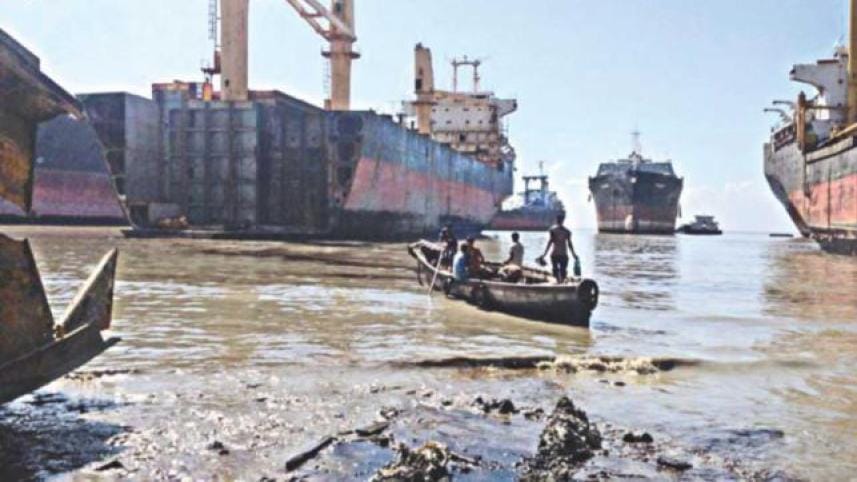An unjustifiable human cost

We are shocked by the news that at least six workers involved in shipbreaking and recycling were killed in the first three months of 2018, the latest as recently as Wednesday morning. It's also pathetic that shipbreaking is turning from being one of the "greenest" industries (because of recycling) into one of the deadliest, with the number of deaths and injuries to workers rising steadily. The Daily Star report on the deaths quoted a Brussels-based NGO that said that between 2005 and 2017, at least 181 workers were killed in accidents in different breaking yards in Sitakunda, Chittagong, which houses the world's largest shipbreaking industry.
We have frequently highlighted the poor safety conditions in these yards and also stressed the need for improving safety as well as the overall living and working conditions of the workers. Although industries that involve physical labour generally lack safe working condition in Bangladesh, the human cost of this fast-growing industry is too great to be ignored anymore. Dismantling a ship is itself a daunting task because of the risks associated with it. And doing it without proper safety gear and necessary pre-demolition caution is like inviting disaster. Regular monitoring to check safety standards is thus an important part of how a shipbreaking industry functions—something that has been regrettably missing in Bangladesh's case.
Shipbreaking is proving to be profitable for Bangladesh, but the authorities—those in the industry as well as the government—must understand that workers' safety comes first and it's not in contradiction to the principles of profits. Making the shipowners respect and obey the safety rules is the responsibility of the government.



 For all latest news, follow The Daily Star's Google News channel.
For all latest news, follow The Daily Star's Google News channel.
Comments